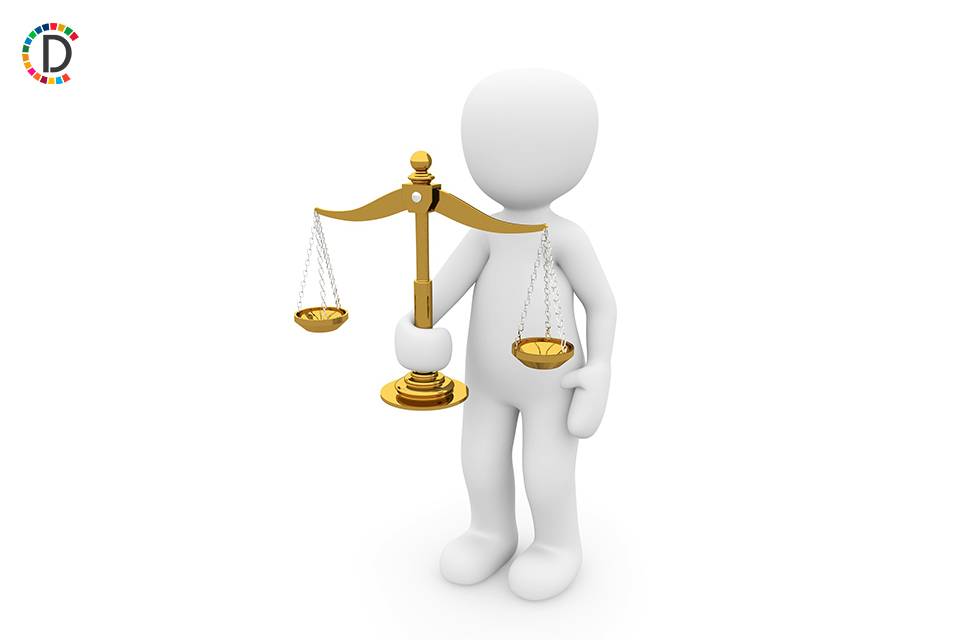Harmony and Trust: Essential Pillars of Democracy, Emphasizes Justice Datta
Democracy requires harmony, transparency, and improvement among its pillars. Justice Datta emphasizes continuing the EVM system unless substantial evidence proves it flawed. He urges a balanced approach, guided by evidence and reason, to ensure system credibility. Through collaboration and trust, democracy is strengthened, with all voices and choices respected. The system in place should reflect the true mandate of the voting public, he concludes.

- Country:
- India
Democracy is all about striving to build harmony and trust among all its pillars through open dialogue, transparency in processes and continuous improvement of the system by active participation in democratic practices, Supreme Court judge Dipankar Datta said on Friday.
Justice Datta, who was part of the apex court bench which rejected pleas seeking complete cross-verification of votes cast using EVMs with a Voter Verifiable Paper Audit Trail (VVPAT), said regressive measures to revert to paper ballots or any alternative to the EVMs that does not adequately safeguard the interests of Indian citizens have to be eschewed.
Penning his views in a separate judgement while concurring with the opinion of Justice Sanjiv Khanna, who was heading the bench, Justice Datta said the issue of doubting the efficacy of the electronic voting machines (EVMs) has been previously raised before the top court and it is imperative that such issue is concluded definitively now.
''Going forward, unless substantial evidence is presented against the EVMs, the current system will have to persist with enhancements,'' he said.
Justice Datta observed that while maintaining a balanced perspective is crucial in evaluating systems or institutions, ''blindly distrusting any aspect of the system can breed unwarranted scepticism and impede progress''. He said a critical yet constructive approach, guided by evidence and reason, should be followed to make room for meaningful improvements and to ensure the system's credibility and effectiveness ''Be it the citizens, the judiciary, the elected representatives, or even the electoral machinery, democracy is all about striving to build harmony and trust between all its pillars through open dialogue, transparency in processes, and continuous improvement of the system by active participation in democratic practices,'' he said.
Justice Datta said our approach should be guided by evidence and reason to allow space for meaningful improvements. ''By nurturing a culture of trust and collaboration, we can strengthen the foundations of our democracy and ensure that the voices and choices of all citizens are valued and respected. With each pillar fortified, our democracy stands robust and resilient,'' he said.
''I conclude with the hope and trust that the system in vogue shall not fail the electorate and the mandate of the voting public shall be truly reflected in the votes cast and counted,'' Justice Datta observed.
The top court pronounced its verdict on a batch of petitions, including the one filed by NGO Association for Democratic Reforms, which also sought a direction to return to the paper ballot system in elections. The petitions before the apex court had claimed the polling devices can be tinkered with to manipulate the results. The NGO had sought reversal of the poll panel's 2017 decision to replace the transparent glass on VVPAT machines with an opaque glass through which a voter can see the slip only when the light is on for seven seconds. The seven-phase Lok Sabha polls began on April 19 and will conclude with the announcement of results on June 4.
(This story has not been edited by Devdiscourse staff and is auto-generated from a syndicated feed.)
ALSO READ
Indian-origin mayoral candidate wants to run London like a 'seasoned CEO'
Indian Biogas Association joins hands with HAI to promote hydrogen
Voting begins for Maldives Parliament, watched by India and China vying for control of Indian Ocean
Lok Sabha Polls: Congress holds CEC meeting for Punjab
"BJP will win Khajuraho Lok Sabha seat with huge margin": Chhattisgarh CM Vishnu Deo Sai










